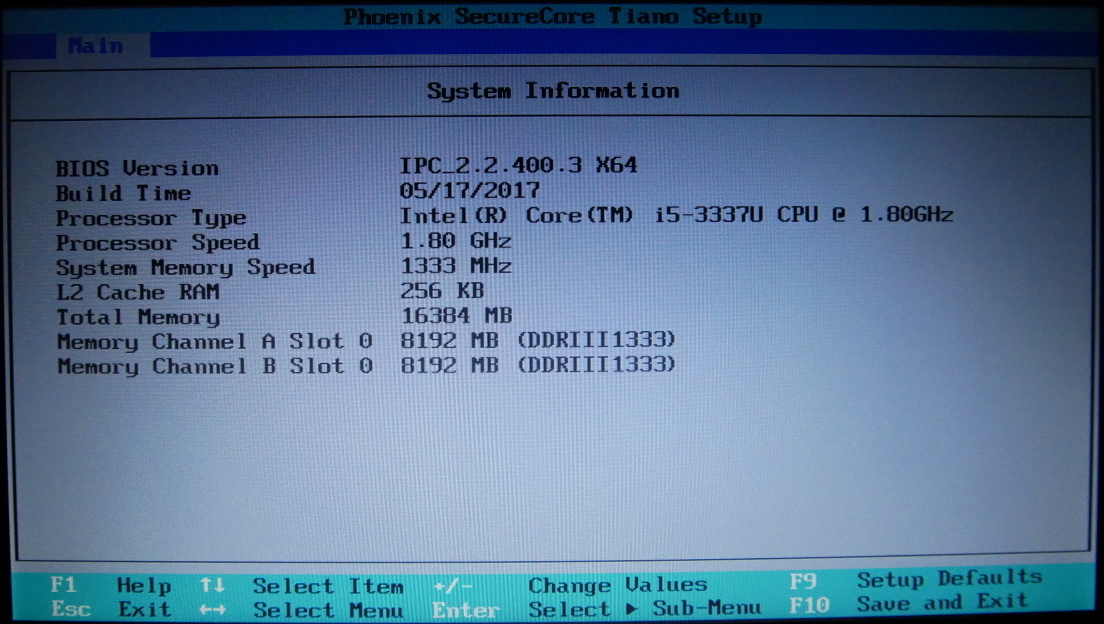Summary
CompuLab have not enabled signature checking of firmware updates for the Intense PC product line. This allows anyone in possession of the Phoenix UEFI update program to write a modified UEFI firmware to system flash. DOS/Windows versions of the Phoenix utility are easily obtained online, allowing a local or remote attacker to install a persistent firmware level rootkit to the computer, or to corrupt the system firmware, causing a denial of service.
Installation of a modified firmware can occur entirely in the background, without any user interaction, and once performed is virtually impossible to difficult to detect using operating system utilities. Physical access is not required.
Product description
The CompuLab Intense PC is fanless mini-PC. A model pre-installed with Linux Mint is also marketed under the name MintBox 2. The system firmware is the same for the Intense PC and MintBox 2. CompuLab also sell the Intense PC with an extended temperature range for industrial applications.
The product was introduced in mid-2013 and is still being sold through Amazon US, Amazon Canada, Amazon Germany, Amazon Spain, and directly from CompuLab.
Affected products
- Intense PC (Intense PC Value, Intense PC Business, Intense PC Pro)
- MintBox 2
Impact
Any software running with local administrator privileges has unrestricted access to read and write the system’s firmware.
An attacker can modify the contents of the system firmware to install a persistent rootkit/bootkit, or to corrupt the firmware causing the computer to cease functioning.
The attack only requires local administrator privileges, and can be executed either by using an existing OS-level exploit to gain local administrator, or via tricking the user into running an executable (e.g. via an attachment in a phishing email).
Proof of Concept
The proof of concept provided for CVE-2017-8083 can be leveraged for this vulnerability as well. The proof of concept uses the Phoenix UEFI Winflash utility to write a modified firmware to flash. Please refer to the article about CVE-2017-8083 for a detailed description of the proof of concept.
The latest CompuLab firmware for the Intense PC (20170521) modified with the upstream EDKII shell can be downloaded here.
Mitigation
At this time there is no means for the end user to enable Capsule Signature verification or to prevent the Phoenix update utility from updating the system firmware.
Therefore Intense PC owners should consider the following options:
- Ensure your operating system is up to date with the latest security patches. Do not run software from untrusted sources.
- Do not connect your Intense PC to any networks with internet access (i.e. air-gap the computer).
- Discontinue your use of the Intense PC and consider replacing the computer with one from a different manufacturer who implements signature validation for firmware updates.
Should CompuLab decide to improve the security of the Intense PC firmware by enabling Capsule Signature validation, then the above recommendations would no longer apply. However, in my communication with CompuLab regarding this issue no indication was given that they have any plans to enable Capsule Signature verification in a future update. Therefore, it seems very unlikely to me CompuLab will issue an update which enables Capsule Signature verification.
Disclosure timeline:
6 June 2017: Issue reported to CompuLab
6 June 2017: CompuLab confirms that “Default settings of this source tree [Phoenix SecureCore Tiano Enhanced Intel Ivy Bridge CPU Panther Point M] has disabled Capsule Signature option.”
6 June 2017: Issue is reported to MITRE
6 June 2017: Vulnerability is assigned CVE-2017-9457
7 June 2017: CompuLab are informed that the vulnerability has been assigned CVE-2017-9457 and details of the vulnerability will be published after 45 days

